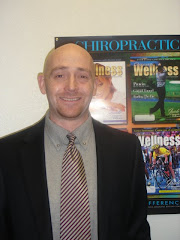As every psychiatrist knows, miracle drugs don’t always lead to miracle cures. Sometimes the inevitable side effects of psychiatric drugs – ranging from chronically dry mouth to panic attacks- become too much for a patient.
One practitioner, James S. Gordon, has a radical new approach to depression. Gordon is certainly well-acquainted with the nuances of depression. But for the past 15 years, as founder of the Center for Mind-Body Medicine, Gordon has helped patients replace their drug prescriptions with a program of alternative therapies. He’s convinced that holistic medicine can be as effective as antidepressants. Most people with chronic depression, he believes, don’t need drugs to feel good.
Gordon’s approach is quite controversial in psychiatry, where the ability of antidepressants to correct abnormal brain chemistry isn’t questioned, and the idea of asking seriously depressed patients to gamble on unproven alternatives is viewed with alarm. Yet, Gordon has had many successes. Jim Norman, an epidemiologist at the National Institutes of Health suffered from depression. He tried for years to stabilize himself with tranquilizers, and then he tried Gordon’s recommended therapies. Five years later, Norman finally feels he can control his moods without drugs. “The ups and downs still exist,” he says, “but they’ve leveled out.”
Should you try mind-body medicine? Depression is not an illness to fool with. If you are depressed and haven’t consulted a psychiatrist or psychologist, go see one. But if your depression is mild, or if you’re already being treated for it, but find you have other ailments, you can consider the approach of James Gordon. But, be discriminating. Two alternative practitioners rarely have the same training or philosophy, let alone the same track record.
Following are some of the alternative therapies to consider:
Acupuncture – Employs the use of needles inserted at certain points in the body. Some experiments suggest needle treatment spur higher levels of serotonin and endorphins in the brain. These chemicals may be involved in improving mood and lessening pain. However, there’s little evidence that acupuncture mental anguish.
Herbal Remedies – Need to be suited to one’s needs by someone trained in Chinese or botanical remedies. Few herbs have been studied as antidepressants, but a review of research in Germany involving the use of St. John’s Wort showed that it worked against moderate depression as well as synthetic drugs. However, herbal remedies are unregulated in this country, and must be used under the supervision of a physician or pharmacist who has studied herbs.
Exercise – By focusing mind and body on a rhythmic activity, exercise lessens anxiety and other negative emotions. Seriously depressed people, though, have a hard time making the effort to exercise on their own.
Meditation – Regularly taking ten to 20 minutes to focus thoughts on a single phrase or image can lower blood pressure, decrease pain and reduce anxiety. However, there’s no direct evidence that meditating helps seriously depressed people. Yet, it does induce a “relaxation response”, a calm state that turns off the “fight or flight” reaction that is part of many anxious and depressed patients.
Nutrition – Gordon and other alternative medicine physicians believe that certain foods, particularly caffeine and sugar, strain the endocrine system and promote depression. No one should fast without a doctor’s supervision; some people are too run down to stop eating. For most people, the best food therapy may come down to good nutrition.
(Summarized from HEALTH Jan. / Feb. 1997 pp 72-78. Article by: Peter Carlin, Reprinted from HEALTH, Copyright © 1997.)
Sunday, May 17, 2009
Subscribe to:
Post Comments (Atom)



No comments:
Post a Comment